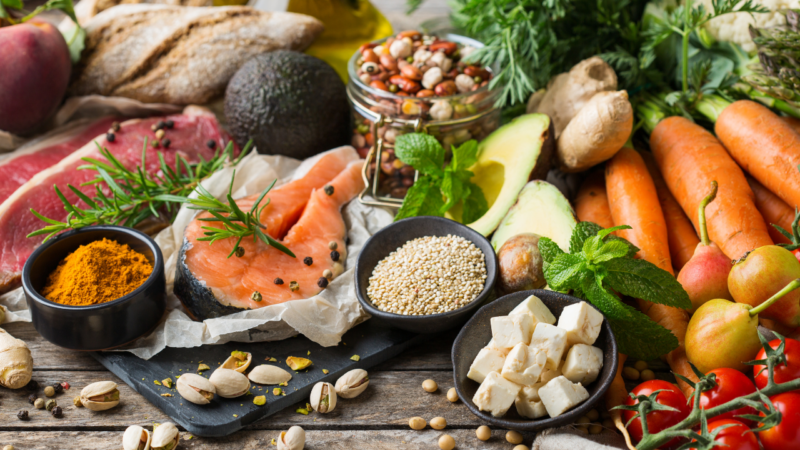Inflammation is a natural and necessary biological response to injury or infection. It’s part of the body’s defence mechanism and is the process by which the immune system recognises and removes harmful and foreign stimuli and begins the healing process.
Unfortunately, due to our modern lifestyles, it has become a response that doesn’t always go away when it should. This is what’s referred to as chronic inflammation.
Age-related changes
It’s not always known why the inflammation continues.
Chronic inflammation is linked to many age-related changes including physical frailty, energy imbalance, temperature dysregulation (an inability to control or regulate one’s emotional responses), and changes in body composition/levels of fat.
Also, nearly all chronic diseases have an element of inflammation.
One of the greatest links that has been found is between chronic inflammation and weight gain. The two have been shown to feed off each other and make each condition worse.

Signs of chronic inflammation can include:
- abdominal pain,
- chest pain,
- fatigue,
- fever,
- joint pain and stiffness,
- sleep disorders,
- mouth sores,
- weight gain (or unexplained weight loss).
If you are concerned that you (or your elderly Mum or Dad) might be suffering from chronic inflammation symptoms, it’s worth discussing with your doctor as there are tests they can do to help diagnose it.
Simple lifestyle changes
The good news is that you can reduce chronic inflammation by making some simple lifestyle changes. Doing things such as:
- quitting smoking,
- limiting alcohol intake,
- maintaining a healthy weight,
- exercising regularly,
- practicing stress management technique, and
- good sleep hygiene
… can have a great impact on reducing inflammation.
The other important area to look at, and modify, is diet.
Foods can have a huge impact on inflammation in the body. Studies are now starting to show that some food groups are linked to increased inflammation whilst others may help to reduce and even eliminate chronic inflammation in the body

Unfortunately, due to today’s fast-paced society, many of us are now eating diets full of ultra processed foods. These are our convenient foods, things such as takeaways, microwave-ready meals, chips, biscuits and chocolates.
They are easy to get and are often cheap as well, but tend to be high in salt, sugar and fat, as well as being full of additives that aren’t naturally found.
They will often be calorie dense but low in things like fibre, so don’t tend to fill you up, which means we often end up eating more of them. These are foods that can cause inflammation in the body.
Anti-inflammatory foods tend to occur more naturally. Things like fresh fruit and veggies, nuts and seeds, herbs, whole grains, olive oil and oily fish (like salmon). They are less refined and when consumed tend to fill us up, meaning we tend not to over-indulge like we might with ultra-processed foods.
Mediterranean diet
One well known diet that is considered to be anti-inflammatory is the Mediterranean diet.
This is a diet based on traditional foods of countries bordering the Mediterranean Sea. Research shows that people living in these regions are healthier and have a lower risk of chronic conditions.

With the Mediterranean diet people tend to eat more fruits, vegetables, whole grains, legumes, nuts and seeds and healthy fats.
They also consume less processed food, added sugars and refined grains. This can help to promote weight loss, prevent heart attacks, stroke and type 2 diabetes.
By making some simple dietary changes one can help reduce inflammation in the body: try to limit your intake of processed foods, reduce the amount of animal proteins in your diet, and include a large variety of high-quality fresh fruit and veggies, nuts, seeds and legumes in the diet (the more colourful the better). And keep well hydrated by drinking lots of water throughout the day.
Oh, and don’t forget to keep moving! Regular exercise is key to a happy and healthy lifestyle!
If you need more advice, would like some help with getting a tailored exercise program for your elderly Mum or Dad, please contact the team at The Physio Co. We specialise in physiotherapy for older adults and would love to help!
Article written by Katie Jenkins (TPC physiotherapist, NSW)

 1300 797 793
1300 797 793
